Growth In Uncertain Times - Through The Web
Small shops are the backbone of U.S. manufacturing. Like the shops profiled here, many are learning to rely on innovative means to attract new business.
Share


Hwacheon Machinery America, Inc.
Featured Content
View More




ECi Software Solutions, Inc.
Featured Content
View More
.png;maxWidth=45)
DMG MORI - Cincinnati
Featured Content
View MoreDennis McKaskle is owner of Toresco, a diversified job shop of 3,000 square feet and three employees in Escondido, California. The shop does CNC milling, leadscrew tapping, metal stamping, wire electrical discharge machining (EDM), grinding and tool building for production stamping. Mr. McKaskle's family bought the business in 1989. The company came with a fairly robust customer list, and things moved along rather smoothly—until about 2 or 3 years ago.
"We began to see things slowing down," Mr. McKaskle says, "especially here in California. We began to lose jobs, and in one case we saw a job move to Mexico—a job we had tooled up and bought machinery to produce. The move was based entirely on labor costs. When the time came, the customer came in and bought up the tooling and machinery—the entire process—and shipped it as a cell to Mexico, where they make the part exactly as we did here."
Employment, then at six, fell to the three.
New, "Lean" Ways To Think
Mr. McKaskle admits that until that point, the company hadn't really thought about new markets or about how to approach them. Business from its original customer list and from other jobs that found their way to Toresco was quite adequate. The company was small, lean and busy. This business model might ordinarily be considered ideal, but when things began to look bleak, Mr. McKaskle had other thoughts. He recognized that, being a small company, Toresco had no real strategy to go after new clients.
"I was working the front office, working on the bench and was also the sales force," he says. "But I didn't have the foot time to go out on cold calls, meet potential new customers or go back for follow-up visits. I just didn't have the time."
He thought about the alternatives. Hire someone to do nothing but sales? Take on a sales rep? Neither was realistic. Both required a substantial investment in time (training) and money, two items that were in short supply.
Then someone introduced Mr. McKaskle to an interactive Internet service enabling manufacturers to buy and sell custom manufacturing services. This service, MFG.com, followed a basic concept that appealed to him. Buyers post requests for quotes (RFQs) at no cost.
Supplier-subscribers quote for business that meets their expertise and capacity.
"Orders literally began to come to our door," Mr. McKaskle says. "I didn't have to spend time physically searching for new customers. Now, I use the system every day, reviewing three to five RFQs. And I quote on everything that looks good—those jobs that we know we can do at a reasonable cost."
Mr. McKaskle says he has been awarded about 10 percent of what he has quoted, and those jobs represent about 5 percent of the bottom line. "That's 5 percent of the business that we wouldn't have otherwise," he says, "and the level of activity seems to be growing."
Mr. McKaskle also reports that when he first started using the site, he was so busy that he deleted RFQs, often in large numbers. "I just couldn't get to them all," he says. "This was the first of the year. Today, I wouldn't do that. While we've got a lot of bids out there, they're not coming in quite as fast as we'd like."
Multiple Disciplines
The diversity of disciplines that Toresco has under roof makes doing business via the Internet that much more appealing. Where Mr. McKaskle sees the real value is in the future. Right now, he's getting a lot of secondary operation work (milling, tapping and so on) from his established customer base. The Internet is bringing him is new machining work and new tool and die building work.
"One of our goals is to keep our machining center busy," he says. "This is really a very competitive area, because just about everybody like us has a machining center. So, keeping our machining center fed is one goal. Others are boosting our mold and die building work and our production stamping. Having all this capacity in-house and using the Internet allows us to bid on a great number of jobs—different kinds of jobs—and to get exposure to new markets. The Internet really allows us to extend our reach, without adding a sales force or making a lot of phone calls."
Information, Communication
"When you get an RFQ, you get an e-mail address, a physical address, phone number and company profile," Mr. McKaskle says. "This is all information that ordinarily I'd have to search for, spending a great deal of time. Today, it's safe to say that I save 20 to 30 hours a month using the Internet instead of making calls and physically going out and knocking on doors. That's 20 to 30 hours I now spend getting product out the door."
Mr. McKaskle relays a specific example: Drive Road Race Products (Torrance, California), a single-employee entrepreneurial startup that designs bracing products to provide strength and rigidity to the frames of vehicles used in road racing and autocross. The company founder, Makio Sato, suddenly found himself without a supplier to do the CNC milling required of his aluminum brace design. Mr. Sato turned to the Internet, found MFG.com and posted an RFQ. (See sidebar.)
"I looked at the print and knew we could do the job," Mr. McKaskle says, "but what was very appealing was this customer's location. It was just a couple of hours away. So, we bid on the job."
But that's not all Mr. McKaskle did. He called Mr. Sato, introduced himself and his company's capabilities, and discussed the details of the job. Mr. Sato awarded the job to Mr. McKaskle the same day.
Two issues played into Mr Sato's decision. The first was location. The close proximity meant that he could work one-on-one with his supplier, particularly as future iterations of the current product and future products came along in development. The second was the phone call. It was not extraordinary, but it showed that Mr. McKaskle was not only keenly interested in the job (his bid was not the lowest), but also that he regarded his customers as partners and that ongoing communication was, for Toresco, a core value.
Clear Vision
Job shops such as Toresco are not alone when it comes to facing new challenges that require a decisive rethinking of how to run their businesses. Toolmakers, as well as the molders they serve, are facing difficult, uncertain times—especially from offshore competitors. Lolli Manufacturing of Leominster, Massachusetts, is a good example.
Eric Yantz, company president, had to develop a clear vision of where his company is going and how it is going to get there. He's going to "grow" the injection molding half of his business, Delta Molding, in order to dedicate more financial resources for new technology in the mold and die part of the business. Also, he's going to look the "Chinese competition issue" straight in the eye and not blink. And he's going to land new business, penetrate new markets and gain market share by working the Internet "very, very hard."
Take Control
"We know that certain segments of the tool and die business are going overseas," Mr. Yantz says, "and the issue is what we're going to do about it. Some people in this business are wringing their hands and calling for government help. They're hoping that, in 2 or 5 years, there'll be some kind of fair trade agreement. But how many of them will be around by then? This isn't something coming down the road—this is here, now, the reality. You've got to be proactive and take control."
So Mr. Yantz has developed an affiliation with a die/mold shop in China. That way, he can offer his customers whose tool requirements fit the "Chinese profile"—generally noncomplex, unsophisticated tools, such as mold bases, die plates and such—the option of having them made in China, without the risk of working with an unknown toolmaker. "We build 144-cavity stack molds and single-face 96-cavity molds for the cutlery, consumer, industrial and medical industries," Mr. Yantz says. "These are intricate, complex molds that would not be candidates for export in any case. And when we do source a tool in China, it still comes back to be inspected, altered, qualified and run off on our machines."
A Powerful Resource
Mr. Yantz says that the affiliation is a way of protecting Lolli's interests and future, but it isn't the only option besides hand wringing and hope. The Internet, he says, is a very powerful marketing and lead-generation resource—if it is used intelligently.
"I started using an online request for quote site near the end of last year," Mr. Yantz says. "The site, MFG.com, is set up so you can test-drive the system before making any commitment. And this site is no auction, or reverse auction, with jobs going to the lowest bidder."
Mr. Yantz reports that he has quoted 15 to 18 projects during the last 5 months. The Internet service has notified him of a number of lost projects; other projects have been put on hold. One project he did win was a six-mold package, building the molds and then injection molding the product. "This was a very good contract," Mr. Yantz says, "and we're just finishing up the first two molds of the six-mold job."
Mr. Yantz says reviewing RFQs on the Internet, when done properly, can circumvent a great deal of wasted time. "In many cases, I can read between the lines of an RFQ and get enough information so that I can make a very educated decision on whether to quote," he says.
"However, I can see how some companies using the site would take a shotgun approach, blasting quotes out on everything and then seeing what hits. But I use a rifle approach. I like to pick and choose those projects on which I think we'll be very competitive. Using the Internet really allows us to penetrate areas that we ordinarily wouldn't know about."
Strategic Redirection
The third aspect of the Lolli growth strategy is acquisition. Mr. Yantz says that in his business today, the money is in injection molding, not in mold building. The margins are better, plus competing against the leading 10 or 20 mold shops is very tough. This redirection doesn't mean that he intends to give up on the mold making side of the business; he just intends to grow it through investing in injection molding. (Lolli builds 40 to 50 molds a year and has recently added an Okuma 15,000-rpm, 30-hp MF-46 VMC with TiAlN-coated ball end mills to its stable of Bostomatics and Fadals).
"There's a major consolidation going on right now with the big injection molders—the automotive suppliers, the custom molders—but the smaller guys, those doing $2 million, $3 million, maybe $4 million a year—we're pretty much under the radar screen. And a lot of these companies are ripe for what I call a mini-consolidation."
Why? Maybe the owners want to retire and there's no succession plan; or they're just breaking even or losing money; or they just don't have the energy anymore—for a number of reasons, the owners want out. Mr. Yantz's strategy is to build Lolli into a $10 million to $12 million company during the next 5 years by acquiring a number of these companies, those with good customer lists as well as those that permit penetration into new markets.
He cites the recent acquisition of Saga Sales and Engineering, a mold and injection molding house with expertise in molding ocular lenses for industrial applications. Saga will be moved into Lolli and raise its injection molding capacity from seven machines to 12 machines, ranging in size from 75 tons to 500 tons.
The importance of the Saga deal isn't just adding capacity or taking over an existing customer base. It is also providing entry to a new business opportunity, the ocular lens market. "This is a market that's not likely to migrate overseas, and it provides us with an entirely new market opportunity. Now, when using the Internet, we can look at industrial optics opportunities—both tool building and injection molding—and feel we can quote very competitively. The marriage of the right acquisition and the Internet can really present new growth opportunities."
Read Next
Building Out a Foundation for Student Machinists
Autodesk and Haas have teamed up to produce an introductory course for students that covers the basics of CAD, CAM and CNC while providing them with a portfolio part.
Read More5 Rules of Thumb for Buying CNC Machine Tools
Use these tips to carefully plan your machine tool purchases and to avoid regretting your decision later.
Read MoreRegistration Now Open for the Precision Machining Technology Show (PMTS) 2025
The precision machining industry’s premier event returns to Cleveland, OH, April 1-3.
Read More

























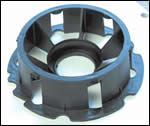
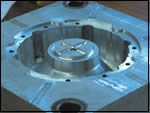
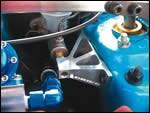

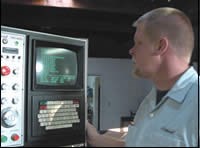
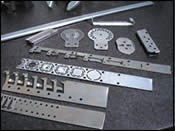












.jpg;maxWidth=300;quality=90)


.jpg;maxWidth=300;quality=90)





